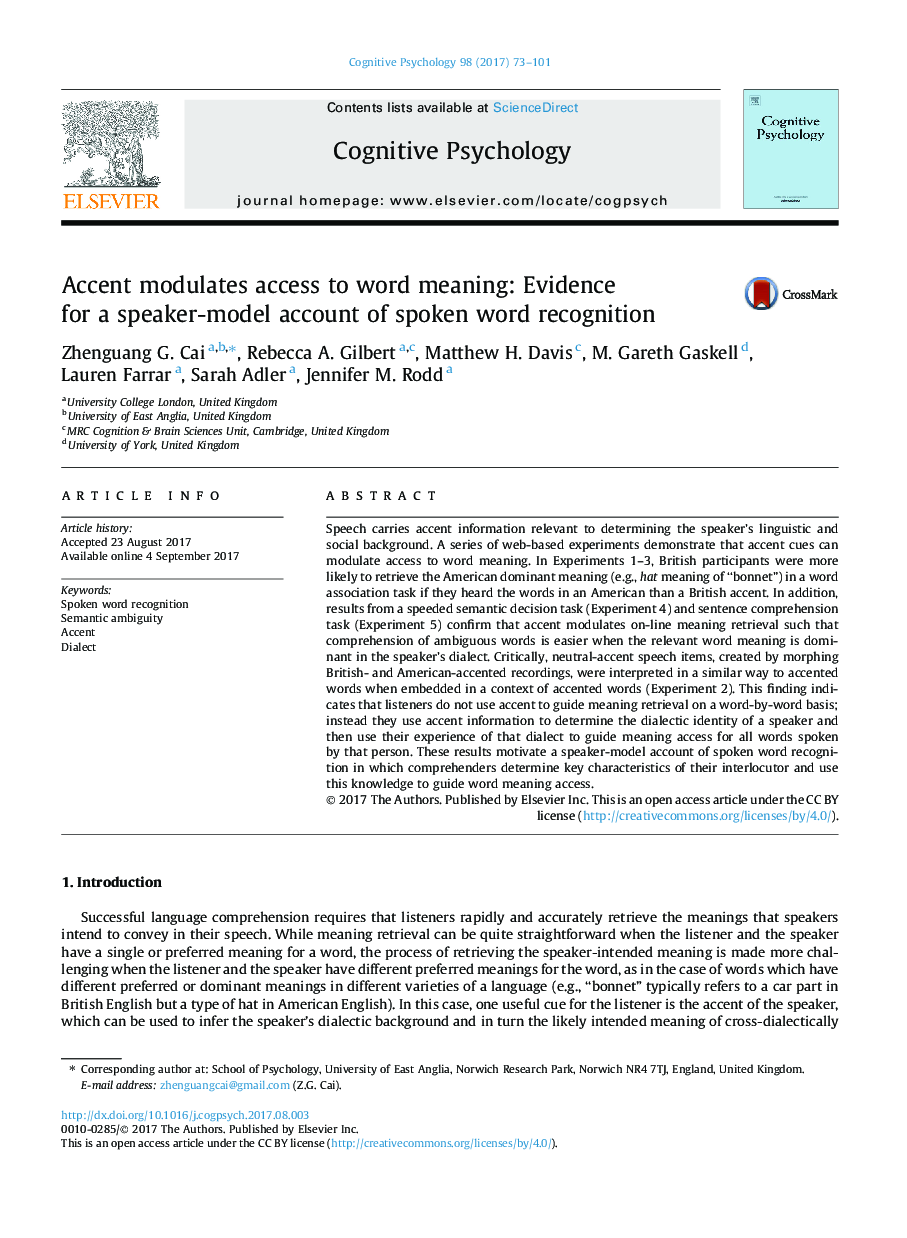| Article ID | Journal | Published Year | Pages | File Type |
|---|---|---|---|---|
| 5039685 | Cognitive Psychology | 2017 | 29 Pages |
â¢Ambiguous words (e.g., “bonnet”) are interpreted differently in American vs. British accents.â¢The accent effect generalises to interleaved neutral-accent (but not written) words.â¢Reaction-time data suggest accent modulates online word-meaning retrieval.â¢Results indicate that listeners build a speaker model for word meaning interpretation.â¢Lexical-semantic and indexical information are utilised in parallel for word-meaning access.
Speech carries accent information relevant to determining the speaker's linguistic and social background. A series of web-based experiments demonstrate that accent cues can modulate access to word meaning. In Experiments 1-3, British participants were more likely to retrieve the American dominant meaning (e.g., hat meaning of “bonnet”) in a word association task if they heard the words in an American than a British accent. In addition, results from a speeded semantic decision task (Experiment 4) and sentence comprehension task (Experiment 5) confirm that accent modulates on-line meaning retrieval such that comprehension of ambiguous words is easier when the relevant word meaning is dominant in the speaker's dialect. Critically, neutral-accent speech items, created by morphing British- and American-accented recordings, were interpreted in a similar way to accented words when embedded in a context of accented words (Experiment 2). This finding indicates that listeners do not use accent to guide meaning retrieval on a word-by-word basis; instead they use accent information to determine the dialectic identity of a speaker and then use their experience of that dialect to guide meaning access for all words spoken by that person. These results motivate a speaker-model account of spoken word recognition in which comprehenders determine key characteristics of their interlocutor and use this knowledge to guide word meaning access.
